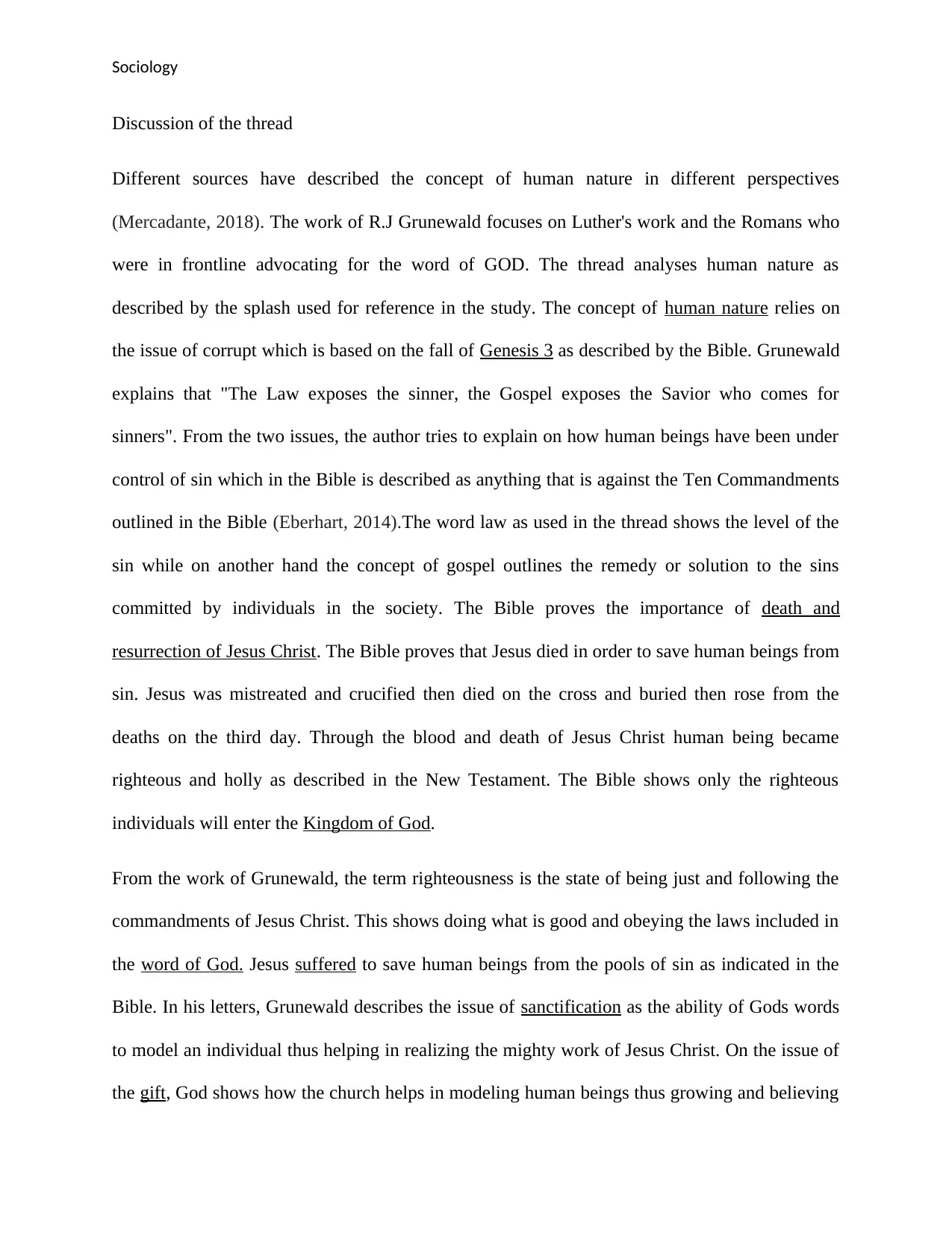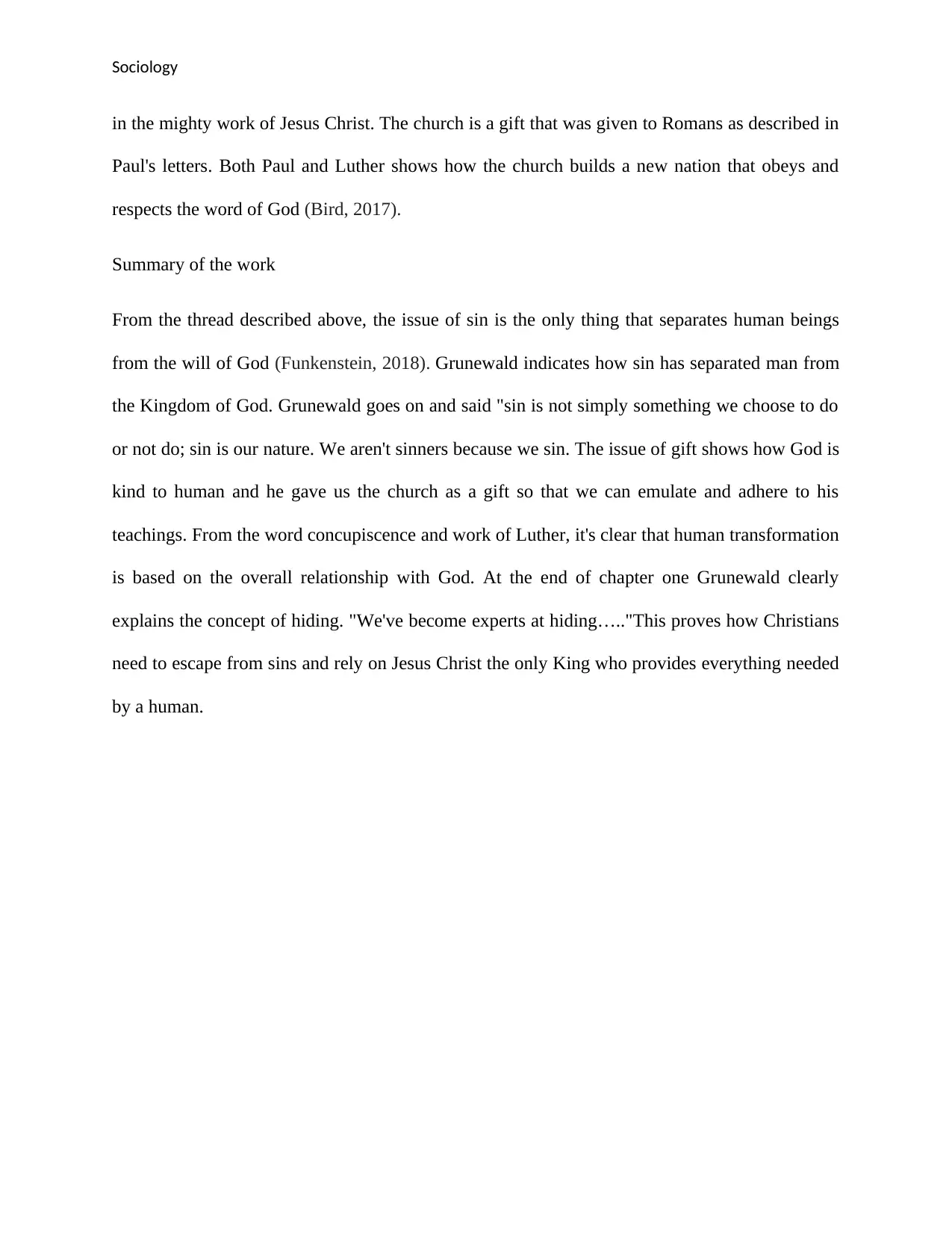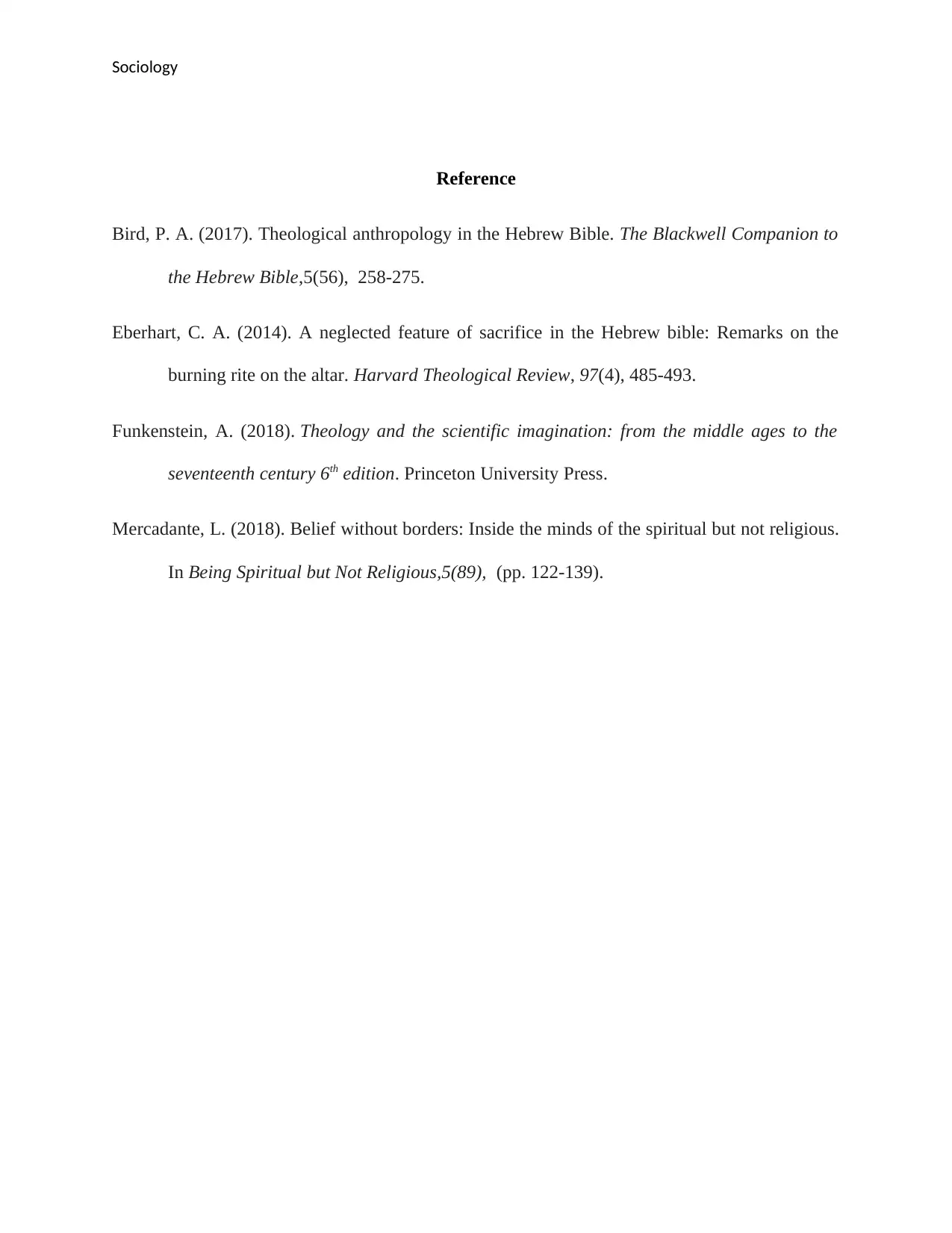Discussion of Human Nature in the Bible
VerifiedAdded on 2023/01/23
|4
|761
|65
AI Summary
This thread discusses the concept of human nature as described in the Bible and its impact on society. It explores the issue of sin, the role of Jesus Christ in saving humanity, and the importance of righteousness. The thread also touches on the gift of the church and its role in modeling individuals. The summary emphasizes the separation caused by sin and the need for Christians to rely on Jesus Christ.
Contribute Materials
Your contribution can guide someone’s learning journey. Share your
documents today.
1 out of 4









![[object Object]](/_next/static/media/star-bottom.7253800d.svg)